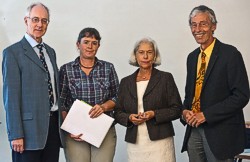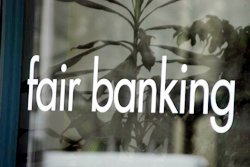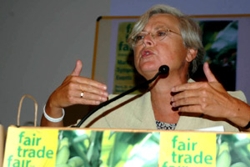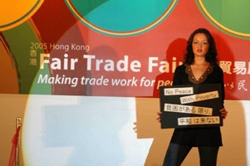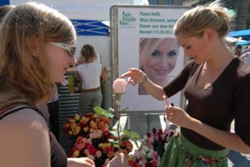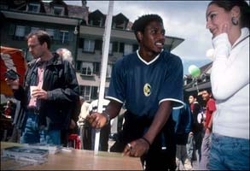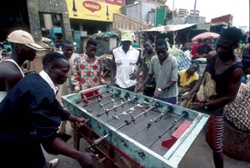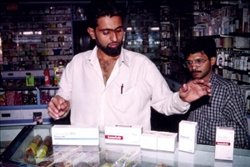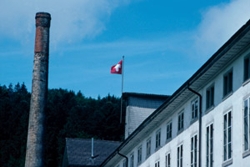RESULTS: TRADE & FINANCE |
|||||||
|
|||||||
 |
|||
|
Sustainable Finance: Achievements, Challenges, Outlook The United Nations Conference on Environment and Development
(UNCED, “Earth Summit”) in 1992 stimulated a global effort to
translate the vision of sustainability into practice. However,
two decades later, there is a big gap between the initial
ambitions of 1992, what has been achieved, and what needs to be
done to offer everybody a life in dignity and to preserve the
planet for future generations. Richard Gerster made a
stock-taking effort in the area of sustainable finance to
identify the achievements so far, the challenges to be met in
future, and possible avenues to enhance progress. The financial
sector occupies a prominent place in the economy, and there is
no leeway to bypass banking and finance when heading towards a
paradigm shift. The forthcoming Rio + 20 event, the United
Nations Conference on Sustainable Development (UNCSD) will take
place from 14 – 16 May 2012 in Brazil and should place an
emphasis on sustainability issues of the financial sector. |
|
||
 |
|||
|
Fair Trade & WTO negotiations: Between footnote and challenge
|
|
||
 |
|||
|
Fair Trade Fair in Hong
Kong, SAR of China,
The Fair Trade Fair attracted a lot of attention and showed that alternatives to conventional trade do already exist. The approach was based on the experiences which were made in 2003 in Cancún, Mexico, where a similar undertaking was a great success. The Fair Trade Fair in Hong Kong had been organized by an international steering committee, which consisted of the Institute for Agriculture and Trade Policy (IATP), USA; Equiterre, Canada, Asia Fair Trade Forum (AFTF), the Philippines, Oxfam Hong Kong and Gerster Consulting, Switzerland. Main sponsors were the Swiss State Secretariat for Economic
Affairs (seco), the Canadian Government (CIDA), the World Bank,
as well as other bilateral or multilateral agencies and private
foundations.
|
|
||
 |
|||
|
fair trade fair Berne (Switzerland), 31 august 2005
More details are available in French and German at the Fair Trade Fair Homepage. The main sponsor, seco, had asked Gerster Consulting to coordinate the event.
Photo - Gallery Fair Trade Fair Bern 05
|
|
||
 |
|||
|
fair trade fair in Cancún: proceedings
Nearly 100 producer organisations, businesses and NGOs representing 20 countries participated in the Fair Trade Fair. More than 600 people attended one or more of the more than 20 panels that made up the Symposium and Policy Forum. The proceedings from the Sustainable and Fair Trade events in Cancún (9 – 13 September 2003) can be downloaded on the right in English and are available in English and Spanish at www.fairtradeexpo.org. The participants list is included with the proceedings as well as an open letter to governments signed by nearly 60 organisations represented in Cancún describing how governments and international institutions can advance Fair Trade globally. Photos you will find here.
You can order a hard copy of the proceedings by sending an email to Kathy Hiltsley at khiltsley@iatp.org with your mailing address. |
Output: 40 pp. Authors: Institute for Agriculture and Trade Policy, USA Comercio Justo, Mexico Équiterre, Canada Oxfam International, USA Gerster Consulting, Switzerland Download PDF: Fair Trade proceedings
|
||
 |
|||
|
fair trade fair berne (switzerland), 1 september 2003
More details are available in French and German at the Fair Trade Fair Homepage. The main sponsor, seco, had asked Gerster Consulting to coordinate the event. Photo - Gallery Fair Trade Fair Bern 03
|
|
||
 |
|||
|
wto: fair play?
Richard Gerster compares trade rules with football rules and concludes that in several respects football rules are closer to fair play than the WTO rules. The Swiss government got tangled up with conflicting interests. This article was published by the Swiss Students' Union (VSS-UNES) as an overview on the WTO in a booklet, "GATS and the Liberalisation of Education" (available in German and French only, see www.vss-unes.ch). Will Cancún become a point of departure to take up these challenges? |
Output: 10 pp. Author: Richard Gerster Download PDFs: WTO: Fairplay? (German) OMC: jouer fair-play? (French)
|
||
 |
|||
|
sugar protection in switzerland
Despite these reforms, self-sufficiency in sugar increased during the past decade from 55% to 85%. In parallel, the quantity of imports also grew, due to increased exports of manufactured products containing sugar. The present protection of the Swiss sugar market is threefold: (1) The two sugar factories receive an annual compensation for sugar processing which includes a subsidy component; (2) Custom duties are the key import barrier; (3) An additional compulsory storage fee is levied on all imports. For developing countries to export sugar to Switzerland today means challenging EU export subsidies, quality, sales and market power. Switzerland includes sugar in its system of preferences for developing countries and for least developed countries. The preferential tariff is, however, very much an alibi exercise. |
Output: 12 pp. Authors: Richard Gerster and Roland Jenni Download PDF: Sugar Protection
|
||
 |
|||
|
options to improve access for mozambican sugar on the swiss market
Removal of custom duties should be finalised by 2004. Moreover, the zero tariff policy should include and equally refund, and later on abolish, the storage fee. As a complement to the proposed liberalisation (zero-tariffs) of market access for LDCs, private efforts merit support to expand and exploit market niches of organic sugar ("bio" ) and fair trade sugar ("Max Havelaar" ). To enhance the competitiveness of Mozambican sugar exports on the Swiss market in general and in particular to facilitate supply of organic and fair trade sugar by Mozambican producers, targeted and transitional technical or financial support to Mozambique is recommended within the framework of the on-going programme of cooperation. Switzerland, therefore, has a number of valuable options to enhance and contribute to the growth and prosperity of the Mozambican sugar sector. |
Output: 10 pp. Authors: Richard Gerster and Roland Jenni Download PDF: Sugar Options
|
||
 |
|||
|
people before patents. the success story of the indian pharmaceutical industry
Early in the 21st century India has a highly efficient pharmaceutical industry, which is blossoming thanks to the weak patent protection of medicines. It provides essential drugs at affordable prices and creates considerable employment. Today, more than 90% of modern medicine consumed in India is produced locally. By 1 January 2005, India will have to comply with the Trade Related Intellectual Property Rights (TRIPs) of the World Trade Organisation (WTO). The new rules of the game may threaten India's achievements. During the last 20 years India has enjoyed an average annual rate of economic growth of 6% The pharmaceutical industry is part of India's success story. |
Output: 10 pp. paper, published in Medicus Mundi Bulletin, Switzerland, April 2002 Author: Richard Gerster Download PDF: India Pharma Success Story
|
||
 |
|||
|
patents and development. lessons from the economic history of switzerland The implementation of the Trade Related Intellectual Property Rights (TRIPS) – Agreement erodes national sovereignty and poses serious obstacles to development. The economic history of Switzerland is a telling example of the need for developing countries today to be able to determine their own system of IPRs according to their specific needs and aspirations. |
Output: 28 pp., published in the ´Intellectual Property Rights´ Series, Vol. 4, by the Third World Network, Penang (Malaysia) Author: Richard Gerster Download PDF: TWN Patents and Development
|
||
 |
|||
|
A Swot-Analysis of the IMF's Proposal for Insolvency Procedures to Reduce Sovereign Debt
We present here an analysis of the strengths, weaknesses, opportunities and threats (SWOT) of the IMF proposal compared to competing concepts (CACs, collective action clauses; fair and transparent arbitration process, FATP). Our comments also highlight similar Swiss proposals, discussed in the late 1980s and early 1990s. |
Output: 7 pp. Authors: Richard Gerster Download PDF: SDRM SWOT
|
||
 |
|||

